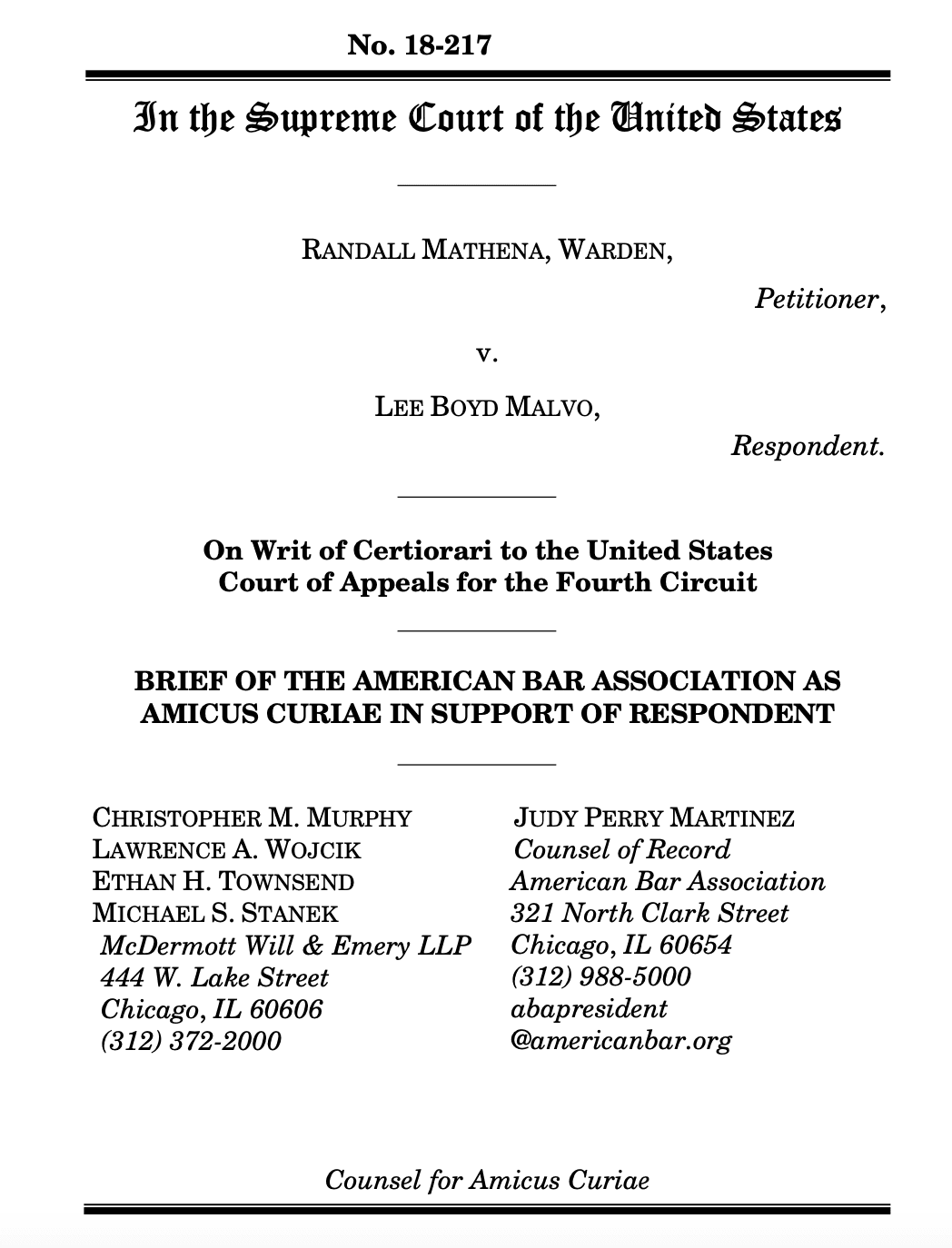
Summary of Argument
The Court initially addressed life without parole for juvenile homicide offenders in Miller. In that decision, the Court required a sentencing court “to take into account how children are different, and how those differences counsel against irrevocably sentencing them to a lifetime in prison” and concluded that no juvenile may be sentenced to life without parole for a crime that reflects “unfortunate yet transient immaturity,” rather than “irreparable corruption.” 567 U.S. at 480 (internal quotation marks omitted).
The Court held that the Miller ruling was a substantive rule of constitutional law in Montgomery. The issue in Montgomery was limited to whether Miller was retroactive on collateral review. Citing Miller, the Court again explained that a life without parole sentence violates the Eighth Amendment except for “the rare juvenile offender whose crime reflects irreparable corruption.” Montgomery, 136 S. Ct. at 734 (citing Miller, 567 U.S. at 479-480). The Court held that Miller announced a new “substantive rule of constitutional law” rendering life without parole an unconstitutional penalty for a class of defendants “whose crimes reflect the transient immaturity of youth.” Montgomery, 136 S. Ct. at 734. Accordingly, the Court held that the Miller decision was retroactive to collateral challenges to convictions. Ibid.
This case presents no new issues for the Court. The Court simply needs to reaffirm its holding in Miller that no juvenile may be sentenced to life without parole for a crime that reflects transient immaturity rather than irreparable corruption.
For the Court to decide otherwise would violate fundamental rule of law principles. The rule of law, which is “indispensable” for a just society, is secured by the Supremacy Clause and held sacrosanct by the Court. Moreover, a decision undercutting Miller could upset numerous state sentencing legislative acts and judicial decisions that relied upon the Court’s Miller decision.
The ABA urges the Court to reaffirm what it already held in Miller, safeguard the rule of law, and affirm the judgment below.